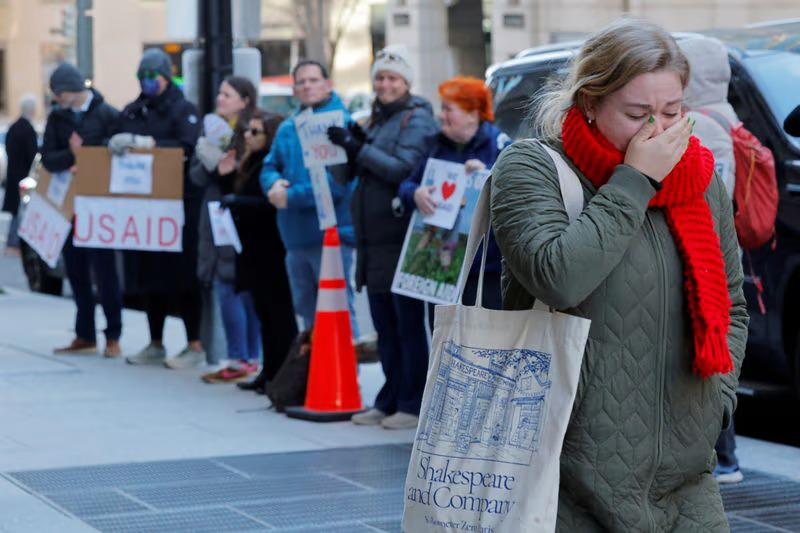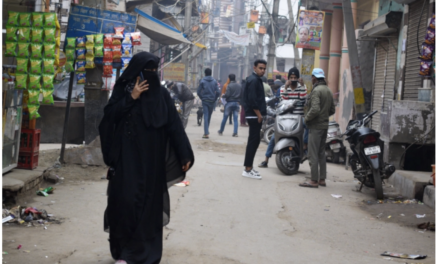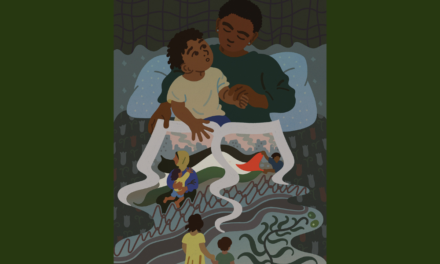Thousands of U.S. Agency for International Development (USAID) employees were given just 15 minutes to clear their workspaces as the Trump administration dismantled the agency.
Under the watchful eyes of federal officers, employees, many in tears, packed up their belongings—files, photographs and decades of dedication—while supporters gathered outside in silent protest.
The move, orchestrated by Elon Musk’s Department of Government Efficiency (DOGE), has eliminated more than 90% of USAID’s contracts, slashed $60 billion in foreign assistance, and left over 5,600 employees without jobs.
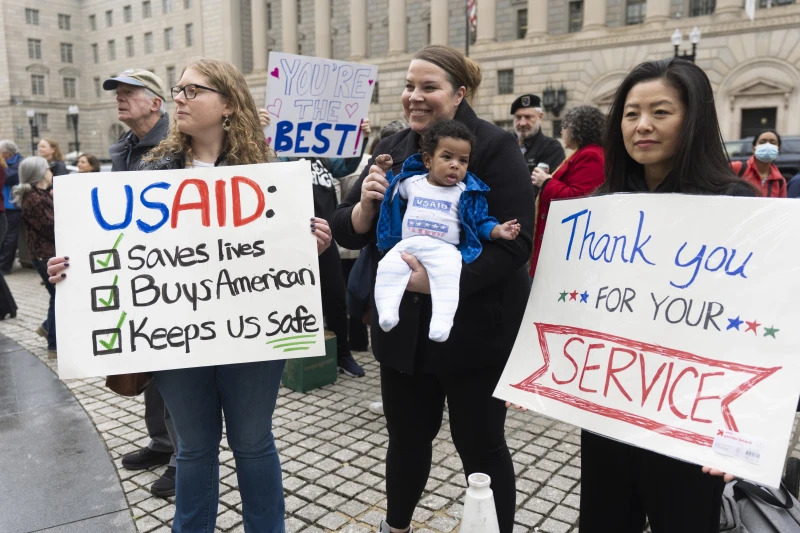
Supporters hold banners as USAID workers retrieve their personal belongings from the office
On February 27, 2025, USAID workers arrived at their now-closed Washington headquarters to collect their belongings. They walked through cheering crowds of supporters, some carrying signs that read, “You and your mission mattered.”
Others handed flowers to employees, who clutched grocery bags and suitcases filled with remnants of careers dedicated to humanitarian aid.
“Heartbreaking,” said Juliane Alfen, a 25-year-old former USAID worker, holding a small bag with a stuffed rabbit peeking out. “I felt like we made a difference. To see everything disappearing before our eyes in a matter of weeks is very scary.”
A 34-year-old staffer, Devon Behrer, said: “My plan was to come here and go into development work. My plan went up in smoke Monday.” She added, “The way people’s lives were being swept away was incredibly disrespectful. There seems to be a lack of acknowledgment that we’re human.”
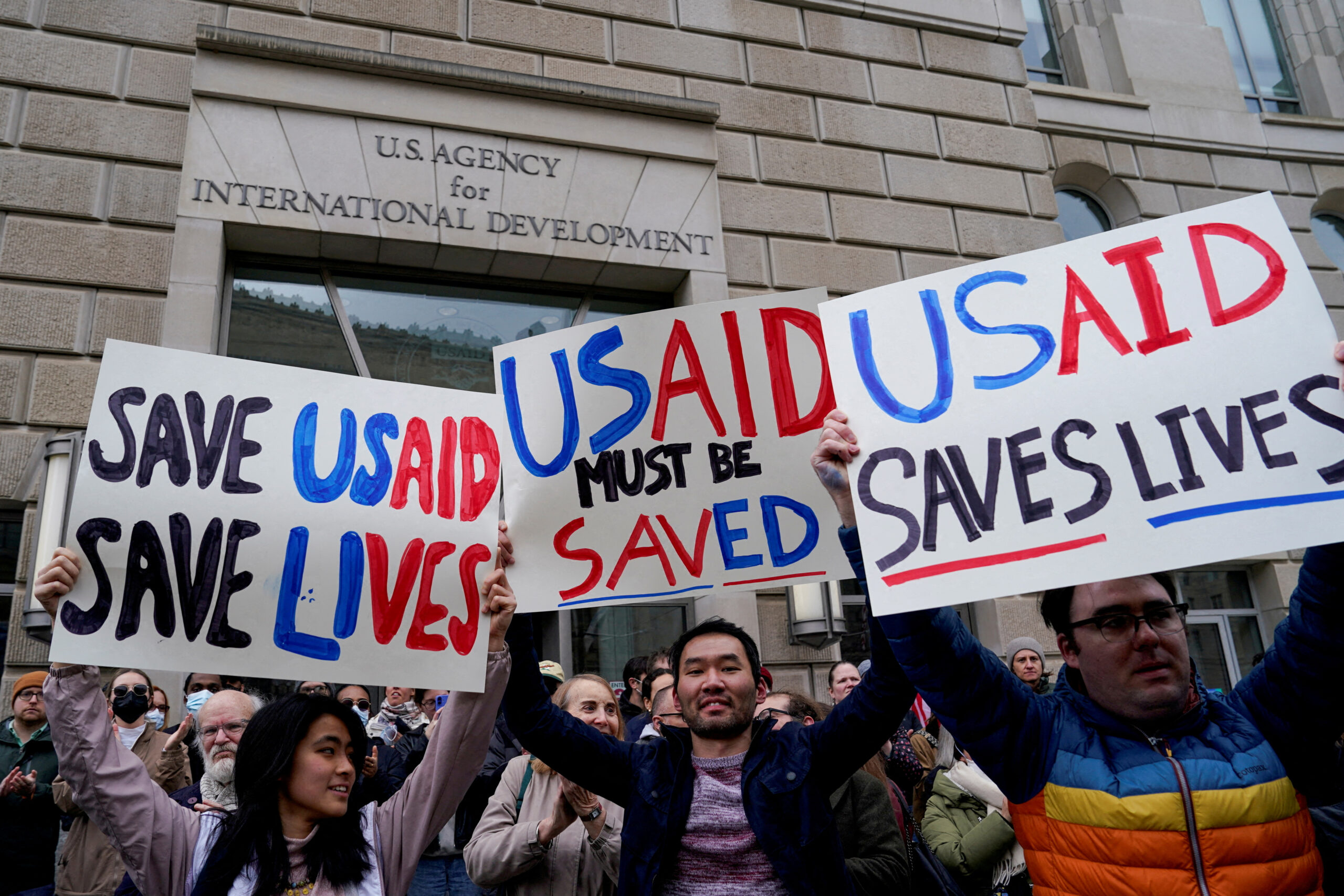
People protesting against the federal decision to shut down USAID
Beyond the personal losses, the decision to shutter USAID has sent shockwaves across the global aid community. The agency’s funding cuts mean the collapse of vital programs supporting millions worldwide. In South Africa, where USAID funded HIV prevention and treatment programs, health experts warn that decades of progress may now unravel.
“We will see lives lost. We are going to see this epidemic walk back as a result of this,” said Linda-Gail Bekker, chief operating officer of the Desmond Tutu HIV Foundation.
The International AIDS Society President Beatriz Grinsztejn called the move a catastrophe: “The U.S. funding cuts are dismantling the system. HIV treatment is crumbling. TB services are collapsing.”

Linda-Gail Bekker, chief operating officer of the Desmond Tutu HIV Foundation.
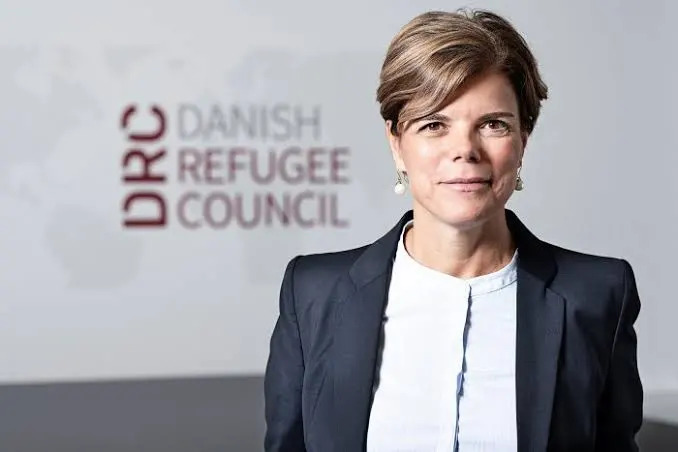
Charlotte Slente, Secretary General of the Danish Refugee Council
Charlotte Slente, Secretary General of the Danish Refugee Council, expressed outrage. “Not only are these terminations egregious breaches of contracts, but they endanger the lives of millions of the world’s most vulnerable people,” she said.
Slente’s organization, like many others, received multiple termination notices impacting projects in Sudan, Yemen and Colombia.
USAID had also been a key supporter of major UN health initiatives, including UNAIDS, the Stop TB Partnership, and Scaling Up Nutrition. Lucica Ditiu, executive director of Stop TB, vowed to keep fighting.
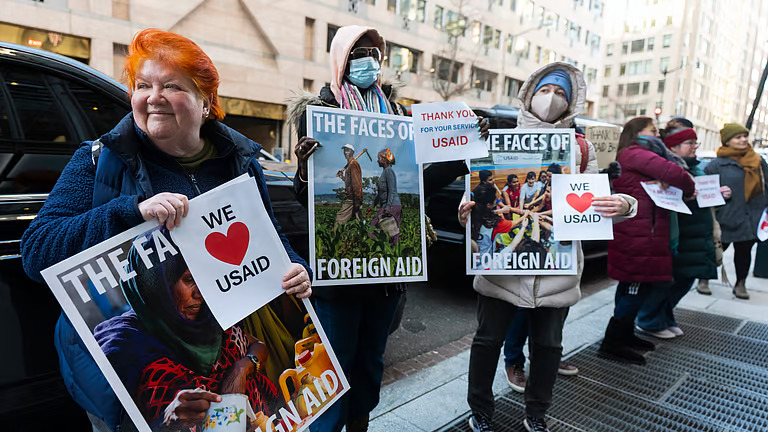
Retired USAID worker Julie Hanson Swanson
“We are hit, but we will continue to be there,” she said. However, her organization was forced to terminate contracts with 140 partners worldwide. The dismantling of USAID was swift and circumvented Congress, which authorized the agency and controlled its funding.
According to a Congressional Research Service report, congressional approval is required to abolish or consolidate USAID, yet there was no significant pushback from the Republican-majority House and Senate. Critics argue that the move was politically motivated, with the Trump administration targeting programs it perceived as aligned with a liberal agenda.
Despite lawsuits challenging the legality of the shutdown, court efforts to halt the dismantling have failed. The Supreme Court temporarily blocked a lower court’s order requiring the administration to release billions in frozen aid, allowing the White House more time to justify its actions.
Meanwhile, Trump’s first executive order in office had already paused all foreign assistance, signaling a premeditated strategy to gut the agency. USAID workers and international aid organizations fear the long-term consequences.

“The American people deserve a transparent accounting of what will be lost—on counterterror, global health, food security, and competition,” warned Liz Schrayer, head of the U.S. Global Leadership Coalition.
Established over 60 years ago, USAID played a pivotal role in global development, stabilizing conflict zones, providing disaster relief, and leading health initiatives. The agency accounted for half of all U.S. foreign assistance disbursements over the past decade, channeling billions into lifesaving programs worldwide.
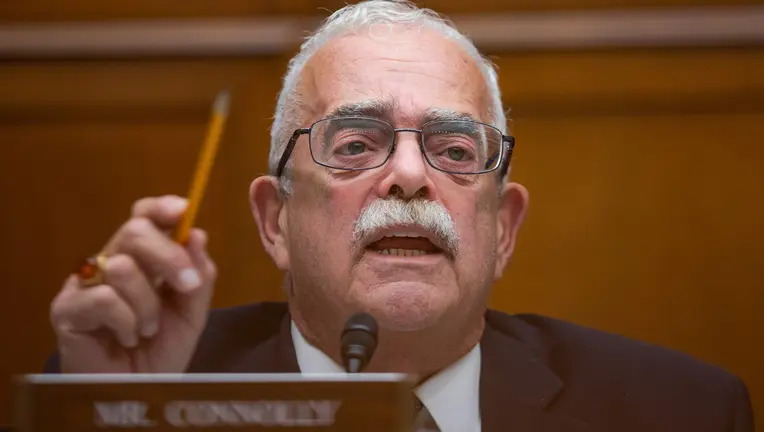
With its closure, experts predict a power vacuum that could destabilize nations dependent on U.S. aid. Virginia Democratic Rep. Gerald Connolly criticized the administration’s actions, calling the targeting of USAID employees “unwarranted and unprecedented.”
He praised the agency as the “world’s premier development and foreign assistance agency,” responsible for saving “millions of lives every year.
By Kanza Emaan
